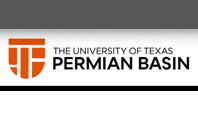Graduate Theses
Date of Award
5-1977
Document Type
Research Project Report
Degree Name
Master of Arts (MA)
Department
Pedagogical Studies
Supervisory Committee Chair
Richard E. Miller, Ph.D.
Second Advisor
Patricio Jaramillo, Ph.D.
Third Advisor
Terryl J. Anderson, Ph.D.
Abstract
This study was designed to investigate the efficacy of the peer helping model as a viable approach to extending guidance services to students not now being served effectively due to manpower constraints in the public schools. Evaluation and research data supporting peer counseling programs are limited. Since the use of peer helpers as an identified and organized element within a guidance program is a relatively new phenomenon, still considered experimental or "innovative", it is not surprising that information is tenuous and often ambiguous. However, the growth of peer counseling programs during the last decade, along with the apparent success of many programs similar to peer counseling in purpose and methods, indicates that the peer influence model has potential for helping meet the needs of adolescents. Peer counseling has gone through several developmental stages, beginning in college programs that were gradually extended into high school settings, often with college graduate students as coordinators. As programs evolved, the formats of the high schools were adapted for use in junior high and elementary schools. From the early programs, which depended upon recruitment of "models", have evolved detailed plans, flow-charts, and syllabi, with training and supervision as basic elements of most programs. Evaluations relative to the effective ness of peer counseling programs frequently attempt to assess changes in the peer helpers that have resulted from their participation, rather than trying to judge the value to the counselees themselves. With the limited assessment data,, which varies widely in character and sophistication, definitive evaluation of the effectiveness of peer counseling programs is largely a matter of judgment and conjecture.
A promising sign, however, is the widespread acceptance of the program, where it has been instituted, by parents, teachers, and administrators, as well as by the guidance personnel, with the result that new pro grams continue to be initiated each year.
Recommended Citation
Reed, Virginia E., "An Analysis of Peer Counseling as a Guidance Process in Educational Settings: A Review of Literature and a Model for Implementation" (1977). Graduate Theses. 43.
https://falconcommons.utpb.edu/utpb-edu/43
Included in
Counseling Commons, Educational Methods Commons, Student Counseling and Personnel Services Commons

